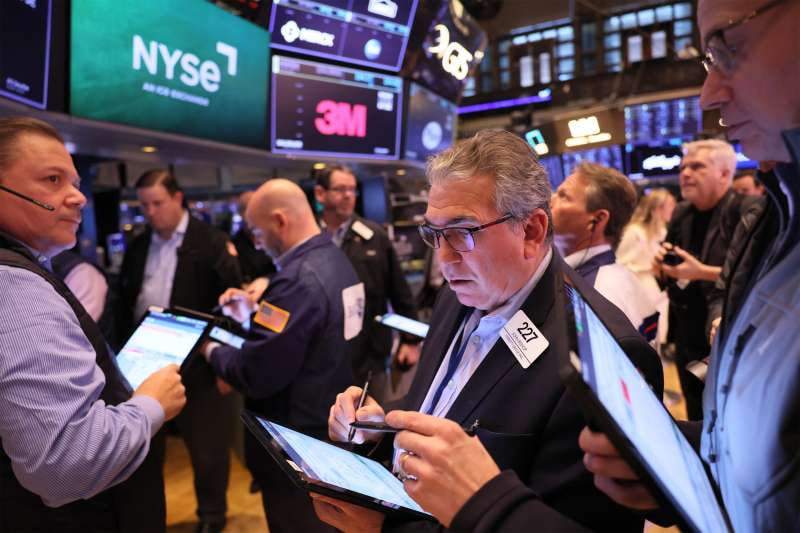China's Forex Market: Navigating Stability Amidst Global Uncertainty (Meta description: China forex market, RMB exchange rate, foreign exchange reserves, cross-border capital flows, macroeconomic stability)
Whoa, hold onto your hats, folks! The world of international finance can be a wild ride, but understanding China's forex market is key to navigating the global economic landscape. This isn't just some dry, academic analysis – we're diving deep into the nitty-gritty, using real-world examples and insights to demystify the complexities. We'll unpack the recent statements from the State Administration of Foreign Exchange (SAFE), dissect the underlying trends impacting the Renminbi (RMB), and offer a peek into what the future might hold. Forget jargon-heavy reports; this is your plain-English guide to China's forex market – a market that's as dynamic as it is influential. Get ready to understand the forces at play, influencing everything from your investments to global trade. We'll unpack the factors behind the recent stability, explore the potential challenges on the horizon, and ultimately provide you with a clear, actionable understanding of this crucial market. Think of this as your personal briefing from an expert insider, providing insights you won't find anywhere else – a must-read for anyone interested in global economics, investment strategies, or simply understanding the pulse of the Chinese economy. We'll be looking at the role of trade surpluses, foreign investment, and even the impact of seasonal fluctuations. So, buckle up, because we’re about to embark on a fascinating journey into the heart of China's forex market!
China's Forex Market: A Deep Dive into Recent Trends
The recent statement by Li Bin, Vice Governor and Spokesperson of the SAFE, painted a picture of relative calm in China's foreign exchange (forex) market. But let's get beneath the surface, shall we? He highlighted a consistent current account surplus from businesses, a slightly increased willingness to convert foreign currency into RMB (the "renminbi", RMB's official name), and a stable demand for foreign currencies—all suggesting a balanced market. This, however, isn't just luck; it's a combination of factors, and understanding them unlocks a deeper understanding of the broader economic picture. What Li Bin didn't explicitly say is equally important; the underlying confidence in the stability of the RMB is a key takeaway.
The continued robust performance of China's goods trade, particularly since August, has been a major pillar of support. This consistent influx of capital from exports has acted as a crucial buffer, creating a solid foundation for overall cross-border capital flow stability. This isn't just a short-term blip; it's a powerful, sustained trend. In fact, the current situation marks a significant improvement over previous periods of uncertainty.
Furthermore, the stabilization of foreign direct investment (FDI) inflows into China is another positive sign. The three-month upswing in capital inflows indicates growing confidence in the Chinese market, despite global economic headwinds. This speaks volumes about the long-term potential and attractiveness of the Chinese economy to foreign investors. This sustained confidence isn't just a matter of speculation; it's backed by tangible evidence. Think of it as a vote of confidence from the global business community.
The Role of Macroeconomic Policies
The Central Economic Work Conference's pronouncements on proactive fiscal policy and a moderately loose monetary policy have played a vital role in bolstering confidence. These policies aim to stimulate domestic demand and support economic growth, creating a more favorable environment for foreign exchange stability. It's like adding fuel to the engine of growth, creating a ripple effect throughout the economy. The accumulation of positive economic factors helps build a firm foundation for a stable forex market.
The seasonal increase in exports and subsequent foreign exchange settlements towards the end of the year are also expected to contribute to balanced cross-border capital flows. This predictable seasonal swing is a crucial element to consider when analyzing short-term fluctuations. It's not a wild card; it's a known variable that helps to smooth out the market's trajectory.
Risk Management and Policy Tools
Li Bin also underscored the significant improvements in the risk management capabilities of Chinese businesses. The increasing use of foreign exchange derivatives to mitigate currency risk and the growing adoption of cross-border RMB settlements to reduce currency mismatch risks are key indicators of a maturing and more resilient forex market. These are not just theoretical concepts; they are tangible tools that are effectively reducing uncertainty and improving the overall stability of the market.
This isn't just about reacting to external shocks; it's about proactively managing risks. This proactive approach signals a significant shift in how China is navigating the global financial landscape. The development of a comprehensive "policy toolbox" allows for targeted interventions when necessary, ensuring the market remains stable even in the face of unforeseen challenges.
The RMB and Global Economic Uncertainty
The stability of the RMB amidst global economic uncertainty speaks volumes about the resilience of the Chinese economy. While external headwinds persist, the strength of China's fundamentals, coupled with effective policy interventions, continues to underpin the relative stability of its forex market.
Frequently Asked Questions (FAQs)
Q1: How does China's trade surplus affect the RMB exchange rate?
A1: A trade surplus, where exports exceed imports, generally leads to an increased demand for the RMB, potentially strengthening its value against other currencies. This is because foreign buyers need RMB to purchase Chinese goods. However, other factors, such as capital flows and government intervention, also play a significant role.
Q2: What is the impact of foreign direct investment (FDI) on the forex market?
A2: FDI inflows increase the demand for RMB, as foreign investors need the currency to invest in Chinese assets. This can contribute to a stronger RMB. Conversely, significant FDI outflows can put downward pressure on the currency.
Q3: What role do foreign exchange derivatives play in managing risk?
A3: Foreign exchange derivatives, such as forwards, futures, and options, allow businesses to hedge against currency fluctuations. By locking in exchange rates, they reduce the uncertainty and financial risks associated with international trade and investment.
Q4: How does the use of cross-border RMB settlements benefit businesses?
A4: Using RMB for cross-border transactions reduces reliance on other currencies, lowering the exposure to exchange rate risks and transaction costs. It also promotes the internationalization of the RMB.
Q5: What are the potential challenges facing China's forex market in the future?
A5: Global economic uncertainty, geopolitical risks, and shifts in global trade patterns are all potential challenges. Inflationary pressures and capital flight remain potential concerns that require constant monitoring and proactive policy responses.
Q6: How does the Chinese government manage its forex reserves?
A6: China's SAFE manages its vast forex reserves strategically, intervening in the market as needed to maintain stability and manage volatility. They aim to achieve a balance between maintaining a stable exchange rate and allowing for market-determined adjustments. The specific strategies are not always publicly disclosed, maintaining an element of strategic ambiguity.
Conclusion
China's forex market has demonstrated remarkable resilience in recent times. The interplay of robust trade performance, stable FDI inflows, effective macroeconomic policies, and enhanced risk management tools has contributed to a relatively stable environment. While challenges remain—as they always do in the dynamic world of international finance—the foundations for continued stability appear solid. Understanding these factors is crucial for anyone navigating the complexities of the global economy. The ongoing evolution of China's forex market is a story worth watching closely, as its stability significantly impacts global financial flows and the overall health of the world economy. Remember, though, that the market is never static; constant vigilance and informed analysis are paramount.



